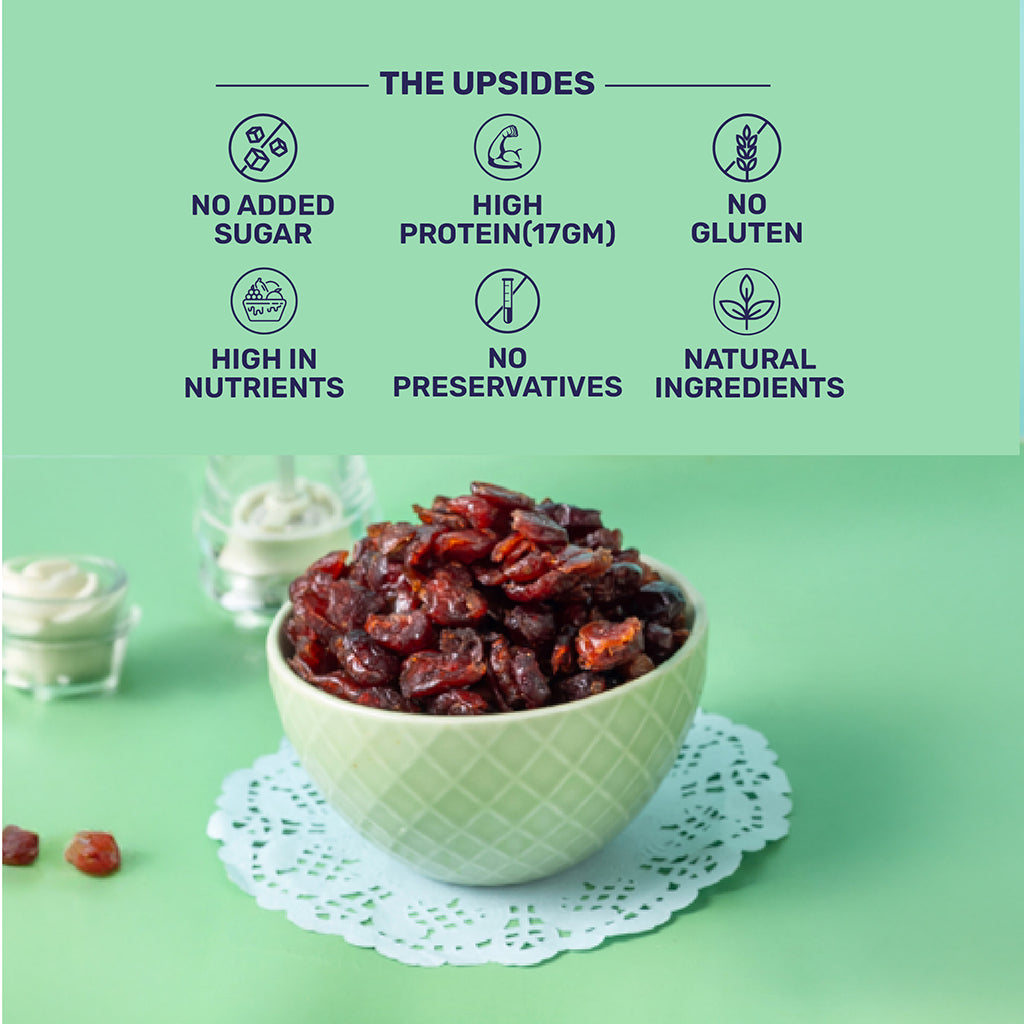
There is a deep relationship that exists between the food we eat and the effect it has on our mental and physical health. Presently, more and more people are inclined to live a healthier life. They want to exercise more, take steps to improve their physical fitness, and overall have a highly functioning mind and body.
But a lot of them don’t have access to the right tools and knowledge to turn this “live healthy” initiative into reality. At Upside Health, it is one of our goals to build a knowledge database on all human health backed by scientific facts and studies.
With this goal in mind, we are going to be exploring “diets” and “Upside Health’s Dietary Philosophy”.
What Is Diet?
“Diet” is probably one of the most commonly misunderstood terms in the modern age. It instantly makes one think of unnatural starvation, eating unpleasant foods, and cutting down on any or all foods you love.
However, actually, diet simply stands for “the food that is generally consumed by one on a daily basis.” It is only in the last few decades that the word “diet” has acquired a multitude of dimensions and shades that have turned into a word that strikes fear in most people.
At Upside Health, we think a little differently than the mainstream. So, in this blog, we will be sharing our Dietary Philosophy with you. But let us look at a few basic concepts first.
The Relationship Between Diet And Nutrition
Diet is the food and drink that is regularly consumed by a human. Nutrition is essentially the biological process in which food is metabolized into energy and other biological components necessary for the body. The food we eat, and the beverages we drink are therefore the building blocks of our nutrition.
Our body is a unique biological structure that needs a variety of different nutrients to remain healthy and to continue functioning at optimal levels.
Food is primarily the fuel that keeps our body going. It is also one of the methods through which we find immense pleasure. We relish eating delicacies and are happy to share a heart meal with friends and family.
However, when our choices skew more and more towards pleasure, we forget that food is primarily meant to be a tool that is responsible for performance. This is when we see the onset of metabolic syndrome. Currently approximately 250 million global urban population has been diagnosed with some form of metabolic health issues. Incorrect dietary choices lead to faster ageing and chronic diseases.
Your fitness levels and physical and mental health is directly affected by your nutrition. A balanced diet leads to correct nutrition and correct nutrition allows you to be your best self - both physically and mentally.
What Is A Balanced Diet?
This is probably the most important question one must ask when discussing diets or dietary philosophies. A balanced diet is basically a combination of foods that give you the right amount of nutrition for your age, physical activity levels, and regular functioning. Your balanced diet should include an appropriate amount of carbohydrates, proteins, fats, minerals, and vitamins.
Now, here’s the tricky part that we are going to share - There is no cookie-cutter template for a balanced diet that is applicable to each and every person. When it comes to your nutritional needs and how your diet can support them there really is no “one size fits all”.
Upside Health Dietary Philosophy #1
“Your diet should become your lifestyle”
Over the years we have seen the rise and fall of many different types of fad diets and crash diets. At Upside Health, we believe that a diet should be evaluated on the principle of “how sustainable it is in the long run”.
If a diet asks you to modify all of your fundamental food habits and switch to foreign or exotic foods then this diet may not be viable for you. Since, after a certain amount of time, both your body and taste buds will crave familiar food.
A sustainable diet is one that accounts for your existing food habits and accommodates them into your diet chart in healthy proportions. Ideally one should aim to make his/her diet a permanent aspect of their lifestyle. It should simply become a way of life and not a “task” that needs to be monitored and controlled etc.
Upside Health Dietary Philosophy #2
“Take a personalized approach to diet and nutrition”
All of us have unique bodies. Our age, gender, activity levels, stress levels, geographical environments, and lifestyle affect our overall health. Add to that managing chronic diseases or physical limitations and what you get is a “one-of-a-kind” person.
Considering these factors, the only right approach to diet and nutrition is a personalized approach. We recommend that you take the time to understand what your body needs.
Consult your trusted primary physician, pay attention to the signals your body sends, and get empowered with technology like CGM (Continous Glucose Monitoring) to truly analyze your individual needs.
Upside Health Dietary Philosophy #3
“Everyone wants to live longer, be healthier and fitter.”
This is purely an Upside Health observation that has cultivated our belief in the fact that, everyone wants to be fit and live a long, healthy life. This is a shared goal.
Unfortunately, many are tempted to take a path that leads to short term benefits instantly.
A lot of people who are consciously trying to improve their health are caught in a vicious cycle of following diets that give them instant results for a short period, but as soon as they stop following those diets, the results disappear. This is true, especially in weight loss cases.
We recommend that while “instant results” are extremely tempting, don’t fall for these diet ideologies. There are no shortcuts to success and there are definitely no shortcuts to acquiring and maintaining good health.
Upside Health Dietary Philosophy #4
“Optimizing food choices to improve and sustain health and fitness.”
Once you make the decision to shift to a healthy lifestyle, your food choices matter even more. Eating healthy food is not as easy as it sounds because we live in a time and age where the market is flooded with highly processed foods.
Over the years we have grown accustomed to eating foods that are high in sugar, refined carbohydrates, seed oils and preservatives. If you observe your food choices objectively, you will notice how much junk food is entering your system on a daily basis.
We suggest that you opt for foods that are closest to nature, have minimal processing, and are freshly sourced. Cook your food with wholesome ingredients, and try to abstain from highly processed foods that contain refined sugar or processed carbohydrates.
A simple thumb rule that you can follow when buying food items is to ask yourself whether this item was available when your grandparents were young. If the answer is a clear no, then don’t buy it. The logic behind this is quite simple - the processed food industry developed quite late in the twentieth century. Before that most food items and recipes were based on fresh, seasonal, and minimally processed ingredients.
It is one of Upside Health’s missions to make metabolically healthy food widely available and accessible to the population at large.
Upside Health Dietary Philosophy #5
“You do you”
Your food habits are defined by multiple factors - your ethnicity, culture, faith, your likings or dislikings, etc. so far be it for others to tell you what “diet” works best.
There are many different options like the Satvic diet, vegan diet, intermittent fasting diet, non-vegetarian diet, vegetarian diet, etc. It is totally up to you to make your choice. Each one of these dietary options can provide rich nutrition to your body and fulfill your basic requirements. At the core, the philosophy is quite simple - the concepts revolving diet and nutrition are few, the methods of application are many. One can pick and choose what strategies and methods work for themselves.
Don’t let others force their ideas on you, just keep going and you do you!
Food For Thought
“Life is a matter of choices, and every choice you make, makes you.”
- John C. Maxwell
Research as much as you can about the food you consume and also pay attention to everything your body has to say to you. Let your diet become an extension of your lifestyle and not a forced chore that you must do every day.








Comments (0)
Back to Learn